June 14, 2022
La Cocina VA sets a table for training and workforce development

La Cocina VA offers culinary job training and placement out of kitchen space on land once owned by Arlington Presbyterian Church.
A nonprofit’s partnership with two Virginia churches offers a model for collaboration between faith-based and community-based organizations.
Eight culinary students dressed in black uniforms with chefs’ caps are working carefully at their stations in a spacious commercial kitchen. They’ve already reviewed the proper techniques for cleaning and removing tails from shrimp and cutting fish into filets, best practices for purchasing, and more. Now they’ve prepared and cooked the recipe of the day: cioppino, a classic stew featuring the shrimp and filets along with leeks, in a rich tomato broth similar in color to the students’ red aprons.
As they talk quietly in Spanish, the time comes to present their creations. Culinary instructor and veteran chef Ed McIntosh is not disappointed.
“Beautiful,” he says to one student, studying the stew in a silver-toned pan.
McIntosh offers feedback as he tastes, pulling down his mask to take quick bites.
“Good,” he says to another student, adding a tip to “just watch your shrimp.”
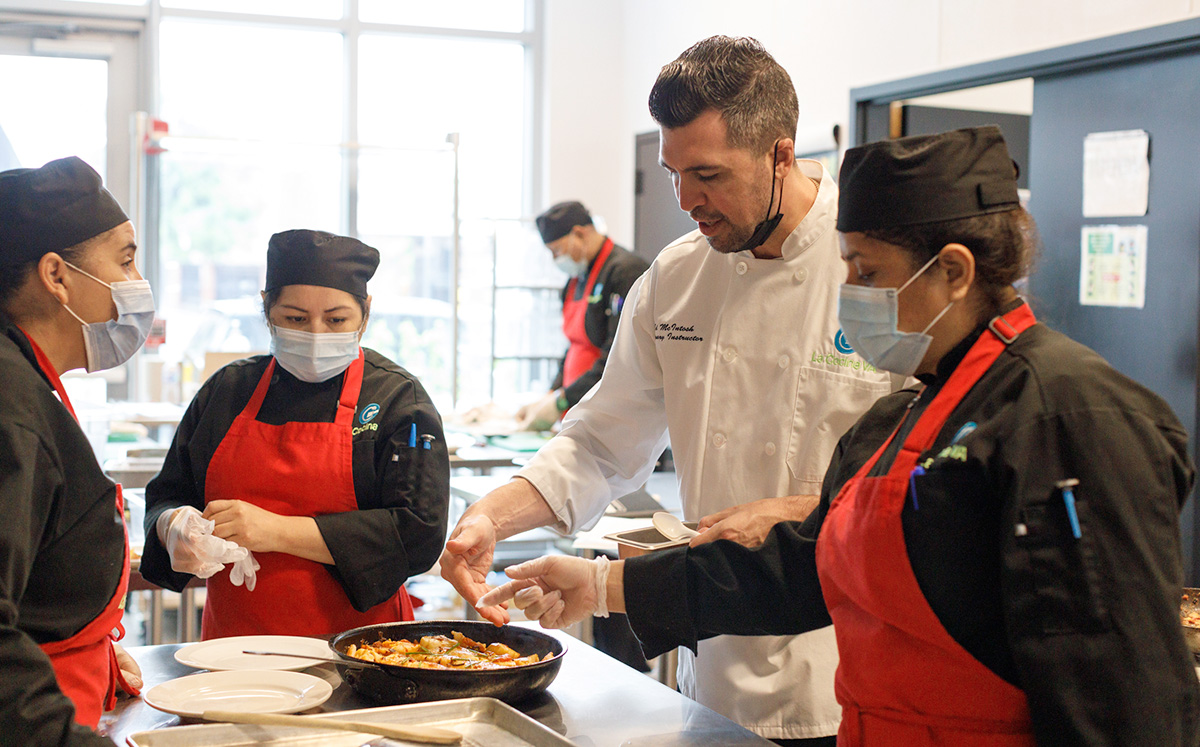
This is a typical day at La Cocina VA, a nonprofit in Arlington, Virginia, that seeks to “use the power of food to create social and economic change in low-income communities.” Founded by Patricia Funegra, the organization works with immigrants, refugees and victims of domestic abuse and other trauma to provide support via job training and placement along with culinary certification.
Though La Cocina VA is not a faith-based organization, it has worked closely with two local churches since its founding. Their collaboration shows how churches can join forces with community organizations to bring about change — offering vital support and partnership to existing innovation rather than independently beginning new church-based ministries. It also provides a model for moving beyond direct service to skill building and community empowerment.
Now housed on land that previously belonged to Arlington Presbyterian Church, La Cocina VA has served more than 200 students in English and Spanish and created relationships with more than 40 food and hospitality partners, including restaurants, markets and hotels. Like many in the food industry over the last two years, the organization also has battled COVID-related challenges, but La Cocina VA has still managed to open an expanded location with a cafe that serves the community.
“We know that we are definitely making an impact in the lives of the people that give us the chance to work with them,” said Daniela Hurtado, the nonprofit’s director of programs and a former chef herself. “There is a huge connection.”
What skills, rather than services, are needed in your community? What can your congregation do to go beyond providing a service?
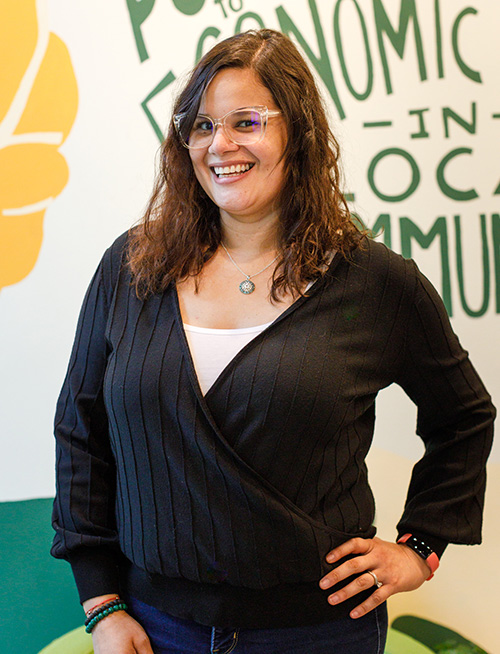
In the beginning
La Cocina VA has raised more than $2.5 million since 2018 to build out its expanded D.C.-area location — complete with a commercial kitchen with stainless steel appliances, a walk-in refrigerator and a variety of supplies. But as is usually the case, things started smaller.
When she first had the idea to create a nonprofit, Funegra — who was born in Peru and moved to the United States in 2007 — had been working in the nation’s capital. She was employed at the Inter-American Development Bank, helping contacts in South America, Central America and the Caribbean with projects in workforce development, women’s rights and other issues.
But Funegra thought there was more she could do. She began volunteering at DC Central Kitchen, a nonprofit offering culinary programs and job training to formerly incarcerated people.
She started by chopping carrots and onions, and then an idea materialized. She saw so clearly that “this is something that we could offer Latinos, especially knowing the large population of Latino immigrants that work in food establishments,” she said. Funegra worked after-hours to network, research and validate her idea even as she held down her day job.
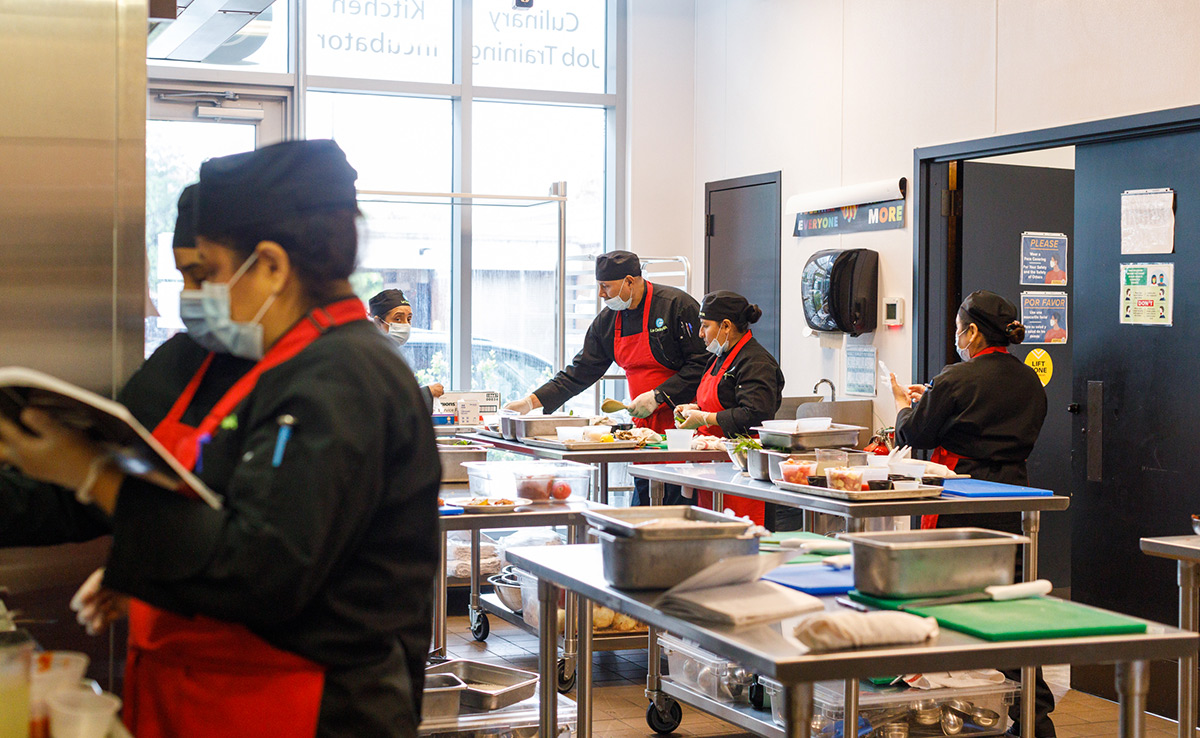
She eventually registered the new organization and went back to connect with DC Central Kitchen. And she built a relationship with a local community college that could offer certificates to graduates. Along the way, Funegra, now La Cocina VA’s chief executive officer, realized that a church could be a great partner.
“I learned that churches in the United States, especially the older buildings, have beautiful kitchens that are underutilized,” she said. And with that, Funegra was off, knocking on the doors of Catholic churches, Presbyterian churches, “all the different denominations,” she said.
When she connected with Arlington’s Mount Olivet United Methodist Church, things really started to move.
What resources are underutilized in your church?
An initial ‘match made in heaven’
While Funegra was making her rounds, Mount Olivet had already been offering community support, including a ministry to reach out to vulnerable immigrants by providing food.
“But then it became clear that we needed to do more than just provide food,” said Marilyn Traynham, the church’s administrator. “We needed to provide a skill.”
The church had a commercial kitchen, so when Funegra shared her dream, “it seemed like a match made in heaven for Mount Olivet,” Traynham said.
To start, the church managed logistics to ensure that there was adequate refrigerated space and insurance coverage for the project and that related needs were met.
“Mount Olivet has three values, and they’re very important: inclusiveness, making disciples, and reaching out into the community and world,” said the Rev. Dr. Ed Walker, the church’s senior pastor. “While there are a lot of good faith-based nonprofits, there are also equally good nonprofits that are not religiously affiliated.
“When there’s a need, you want to help find a way to meet that need.”
And so they did. La Cocina VA’s first cohort started in 2014, operating in the church’s basement. For several years, Mount Olivet provided not only space for classes but also lunches for students, gifts at Christmas for students and their families, volunteers to help transfer meals to low-income housing communities, and other support.
“[Mount Olivet staff] were so kind. We never paid a dime, not even for toilet paper,” said Hurtado, expressing gratitude to the church.
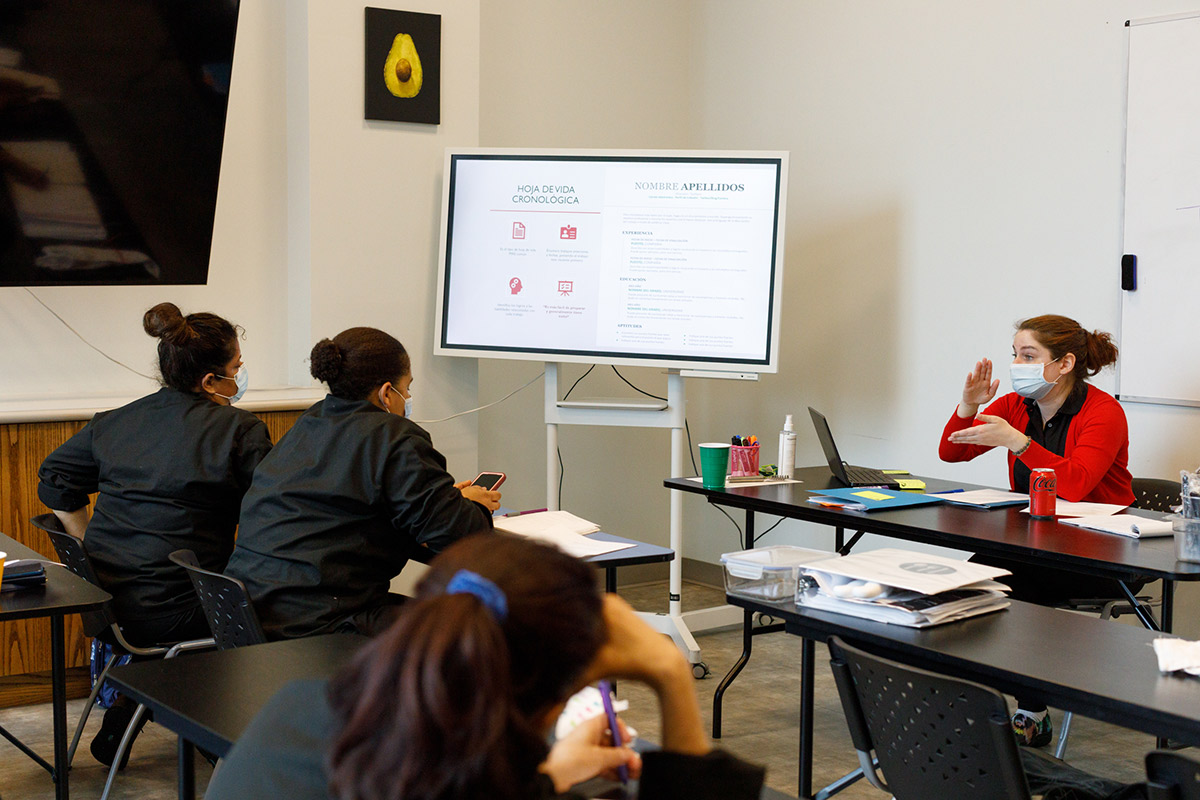
Students also received additional benefits. As Funegra explained, the program offers full scholarships, so students don’t have to pay for instruction, uniforms or other needs. The program has offered stipends for students without cars or jobs.
Funegra said this kind of help can be “hard to believe at the beginning” for some members of the immigrant population. Building this sense of care is immensely powerful, she said, explaining that in addition to finding jobs, some women have been able to heal or step out on their own.
But as the program expanded, it began to outgrow its church home. In addition to helping participants with their finances and business development, La Cocina VA staff became interested in growth for themselves.
When the opportunity came to move to another space in Arlington, made available when Arlington Presbyterian Church sold its building to benefit the local community, La Cocina VA staff took it. (The church is a recipient of the Traditioned Innovation Award.)
The nonprofit relocated to its new, built-out Gilliam Place facility during the pandemic, pushing through periods of capacity restriction and at times complete closure due to quarantining. Today, if you stroll through their modern, 4,000-square-foot space, you’d never know what they have endured.
Hurtado called the move to the new training and entrepreneurship center “a big accomplishment.” Its new programs include the cafe, which showcases products from the shared-kitchen members as well as La Cocina’s own menu, she said.
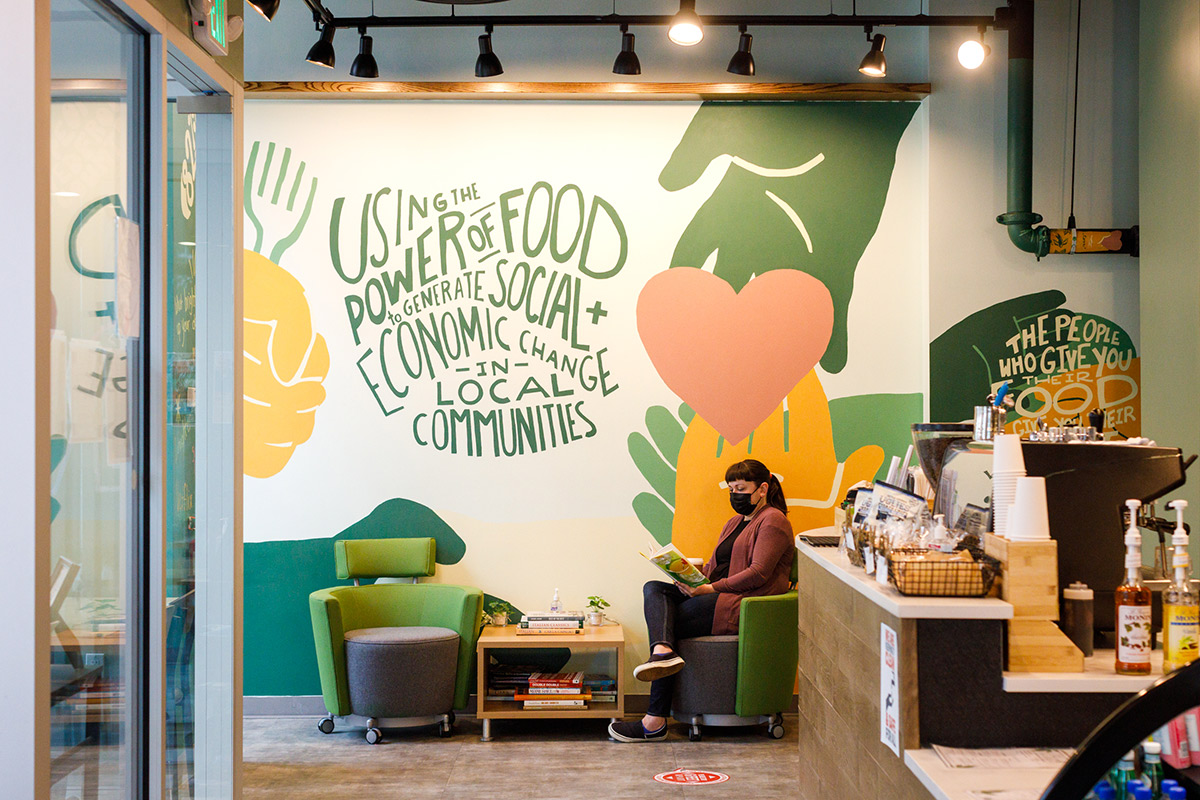
Now, the nonprofit has an operating budget of $1,662,000, according to staff members, an active and diverse board of directors, and a new partner in Arlington Presbyterian, which seeks to welcome all and “serve with compassion.”
Mt. Olivet’s relationship with the nonprofit continues, too. Funegra “is a very strong leader,” Walker said, noting that their partnership has worked well because of how Funegra has managed the program.
For churches considering similar arrangements, he said, “my advice would be, make sure the nonprofit has strong leadership.”
When working with this kind of organization, Traynham said, churches should think of the collaborator not as “a building user” but as “part of the ministry.”
A present-day partnership
The new partnership that La Cocina VA has forged with Arlington Presbyterian tracks along an innovative arc for both the nonprofit and the church.
Chartered in 1908, Arlington Pres sold its building and land in 2016 to allow for the creation of affordable housing after the congregation repeatedly heard that many people who worked in the city could not afford to live there, said the Rev. Ashley Goff, the church’s pastor, who now also sits on La Cocina’s board.
The cost of living in Arlington, Virginia, is 44% higher than the national average, and 134% higher when it comes to housing, as PayScale confirms. And in this diverse community, disparities are real, with 6.4% of the population living below the poverty level, according to the 2020 American Community Survey.
The result of the church’s rather sacramental gesture is Gilliam Place, the development where La Cocina is now located. The space’s 173 affordable housing units serve people with low-income, seniors and those with disabilities — and it includes leased space for Arlington Presbyterian, Goff said.
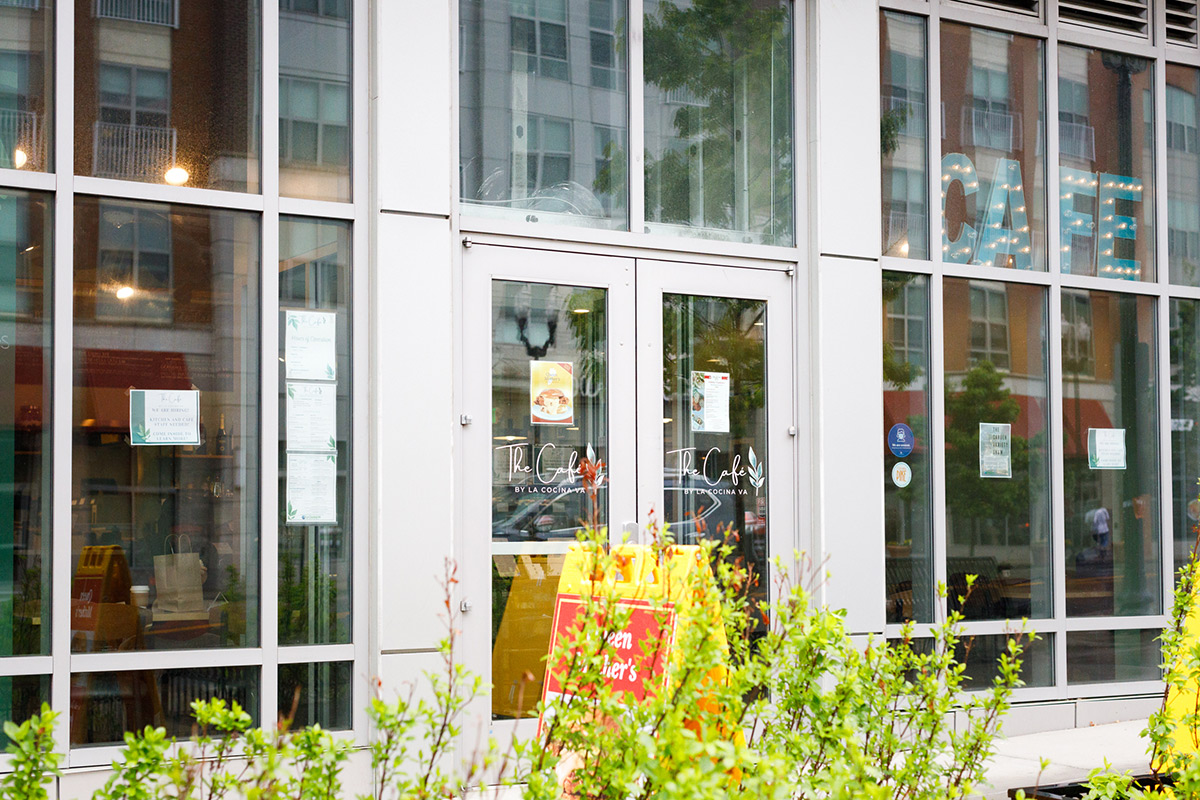
“The call from God to do something about affordable housing was bigger than the building itself, so the building had to go,” she said, harking back to a quote from a church member and explaining that the church is there to be a neighbor.
Arlington Presbyterian buys food from La Cocina VA and contributes financially — including a recent gift of $100,000, Goff said. “We actually discover who we are and who God calls us to be the more that we give away.”
The donated funds continue to benefit students from a range of backgrounds. For instance, a student named Elizabeth, who chose not to share her last name, said she is a trained veterinarian in her home country, but in the United States, she works as a medication aide.
“I would like to also have other options,” she said in Spanish, noting a desire to work independently.
Student Sandra Luz Roman said she enrolled to improve her technical cooking skills, with dreams of opening a little restaurant serving Mexican food.
What might God be calling your church to that is bigger than the building?
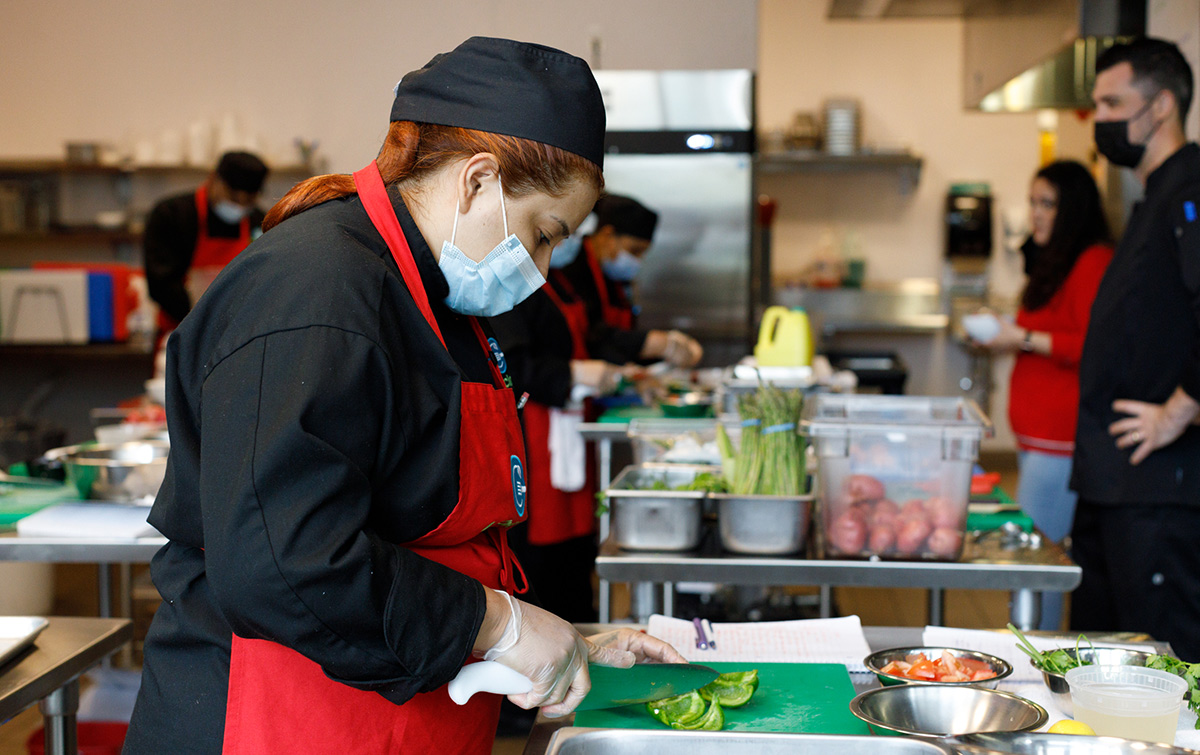
Meanwhile, student Wilmer Mejia said he studied chemistry in Peru but now works as a cook in the United States. He said in Spanish that the program lets him learn and is “offering opportunities.”
And those opportunities extend beyond what is taught in the kitchen. For instance, when the morning cooking session of the program concludes on a Friday in May, students straighten up their stations and move to an adjoining classroom to learn about formatting resumes.
When they shift rooms, they leave the kitchen spick-and-span. Bowls are nestled within each other. Large onions are piled in a clear container. Measuring spoons and cups are housed in storage spaces. It’s almost as if the students were never there.
How does your congregation discover who God is calling it to be? How do you discover who God is calling you to be?
And yet the impact of La Cocina VA’s work, and the churches with which they’ve partnered, is clear. The program is teaching Spanish- and English-speaking adults. Matching them with jobs. And creating hope.
As this work continues, Hurtado said, their faithful partners have been huge supporters.
“We definitely feel the love,” she said. “We have definitely been blessed by these two different churches.”
What does a faithful partnership look like for your congregation?
Questions to consider
- What skills, rather than services, are needed in your community? What can your congregation do to go beyond providing a service?
- What resources are underutilized in your church?
- What might God be calling your church to that is bigger than the building?
- How does your congregation discover who God is calling it to be? How do you discover who God is calling you to be?
- What does a faithful partnership look like for your congregation?




Share